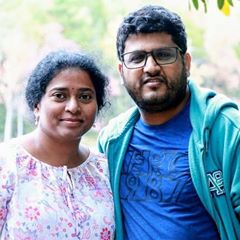In today’s fast-paced world, it’s crucial for kids to develop habits that encourage continuous self-improvement. One effective method is to ask themselves these three key questions: Where am I? What am I doing? and How can I get better? By asking themselves these questions, kids become more self-aware, develop critical thinking skills, and set actionable goals. Let’s explore how each question can guide them toward constant growth and excellence!
Where am I?
The first step to self-improvement is understanding your current position, both physically and mentally. Children should make sure to always start with this question, since it sets up the foundation for answering the other two. To answer this question properly, don’t just think about your location, but assess your mental state as well. Making sure your mental and physical position align is an important starting point, because you can’t continue forward if they don’t first line up.
When kids ask themselves “Where am I?”, they take a moment to assess their current situation, whether it’s in their studies, sports, or personal goals. This self-awareness allows them to identify their strengths and areas that need improvement. For example, a student might reflect on their performance in math class and realize they struggle with certain topics. Furthermore, they may also recognize that their focus level is not at its peak, which can be a contributing factor to their struggles. By pinpointing these areas, they can both seek additional help in those areas, as well as work to improve their focusing skills. This first question encourages kids to take stock of their present abilities and set the stage for targeted improvement.

What am I Doing?
The next question, “What am I doing?”, helps us focus on their current actions and behaviors. It’s essential for us to understand how our daily habits and routines impact our progress. Additionally, this question helps us focus on the present; the here-and-now. This reflection encourages kids to be mindful of their actions and make necessary adjustments.
For instance, a student might notice that their grades are affected by spending too much time on distractions, such as video games or social media, instead of studying. By acknowledging this, they can create a more balanced schedule that prioritizes their academic responsibilities. In sports, a young martial artist might realize they’re not practicing their techniques consistently. Recognizing this allows them to develop a more disciplined training routine. This question emphasizes the importance of being conscious of one’s actions and how they contribute to overall goals and performance.

How Can I Get Better?
The final question, “How can I get better?”, is all about setting actionable goals and striving for improvement. After assessing their current situation and actions, kids can now think about concrete steps to enhance their skills and performance. This quintessential self-improvement question fosters a growth mindset and encourages proactive behavior.
A student aiming to improve their grades might decide to set specific study times, seek help from teachers, or join study groups. An athlete wanting to excel in their sport might create a structured practice plan, watch instructional videos, or seek advice from coaches. By consistently asking “How can I get better?”, kids learn to identify practical strategies for growth and remain motivated to achieve their goals. The best part? Answering this question reveals the path forward, enabling kids to not just improve themselves, but learn how to start doing it for themselves!

In Conclusion
Incorporating these three questions into daily routines helps kids develop a habit of self-reflection and continuous improvement. By asking “Where am I?”, they gain self-awareness; by considering “What am I doing?”, they become mindful of their actions; and by pondering “How can I get better?”, they set measurable goals for growth. This simple yet powerful approach not only enhances their skills but also builds a strong foundation for lifelong improvement and success. Encourage kids to regularly ask these questions and watch them grow as they take charge of their own development.








